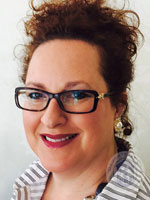It can be difficult to know what to say to someone diagnosed with dementia. Often they don’t disclose their diagnosis in the early years so you can tell at times that something is not quite right. You don’t know why they are different to how you have always known them and you don’t want to guess or ask for fear of being wrong and offending your relative or friend. Likewise, if you have a friend who has been diagnosed with dementia it can be difficult to know what to say and how best to support them.
Dementia can affect an individual in various ways, depending what caused the dementia, what state of health the individual was in prior to the onset of the condition and how their brain is uniquely affected.
The author of this list, 20 Things Not to Say to Someone with Dementia, Kate Swaffer is living with dementia and makes some great points here.
Kate has asked us to include the following when sharing her 20 point list.
“If it is possible to positively impact the life of even one more person living with dementia, then it would not matter how many people without dementia disagreed with me”.
Kate Swaffer recently wrote:
“The development of this list has sometimes been taken the wrong way by family care partners. It was not written to upset or criticise care partners but to help them understand that a few changes to the way they are, when around people with dementia, might improve our experience of dementia and therefore make their job easier.
It was only ever written up to try and reduce the ‘burden’ so many tell us we are to them. But perhaps my directness is too blunt, and needs more discussion. A guide on what not to do or say certain things, and what the alternative is, is in progress. Dementia has encouraged me to be more direct than I was before, it has reduced my shyness and increased my willingness to discuss the difficult topics; unfortunately that may come across as unkind and critical, when it is not meant to. It may also be that I am more direct than I mean to me, because of the inner frustration I continue to feel that the voice of people with dementia is mostly still being ignored, and there is, after so many years of “about is without us’, still such a long way to go.”
1. Don’t say ‘but you don’t look or sound like you have dementia’.
2. Don’t tell us ‘we are wrong’.
3. Don’t argue with us or correct trivial things.
4. Don’t say ‘remember when…’.
5. Don’t refer to us as suffering, sufferers, demented, dementing illness, vacant dement, demented sufferer, an empty shell, fading away, disappearing, or that it is the longest goodbye, saddest goodbye, stealing us away (we are always still here), afflicted.
6. Don’t say you are ‘living with dementia’, unless you are diagnosed with dementia.
7. Don’t remind us of the death of a loved one or pet.
8. Don’t blame the person for the changes in behaviour or personality.
9. We have a form or type of dementia, not an ‘affliction’.
10. Don’t call me honey, love or anything other than my preferred name.
11. Don’t refer to us as ‘aggressives’, ‘wanderers’, ‘poor feeders’, ‘wetters’, ‘attention-seekers’, ‘non-communicators’ or as ‘obstructive’ – we are still human beings.
12. Don’t assume because we can’t tell you, your words or actions don’t hurt our feelings.
13. Don’t assume I can’t answer for myself.
14. Don’t talk about me to someone else, in front of me.
15. Don’t assume we can’t communicate even if I can’t speak.
16. Don’t say ‘but I’ve just told you that’ or ‘you’ve asked me that already’.
17. Don’t think we can’t feel pain, or have emotions.
18. Don’t call us ‘sufferers’ or ‘victims’.
19. Don’t assume we don’t understand, just because we are silent.
20. Don’t assume anything; it makes an ass out of yo(u) and me.

At Daughterly Care’s Mosman Aged Care Advice Centre, we hold regular free seminars on various dementia topics for the carers, friends and family members. We invite you to come along to discuss your individual circumstances. We can share ideas to help you understand the journey for someone living with dementia and how best to support them. We must start to think of dementia as a disability due to some cognitive deficit. How can we provide the “cognitive ramps” that the person needs? Dementia does not have to take the joy out of life.
We think its really important to hear from people diagnosed with dementia. If you have dementia, do you have anything you would like to add to Kate Swaffer’s list? If you do, leave us a comment below (we don’t publish your email address).

Warmly
Kate
Kylie Lambert B.Ec F Fin
(known to her friends for 25 years as Kate)
Daughterly Care CEO, Co-Founder and Owner

So many aspects to dementia this list is a brilliant start to remind us how to interact and generate positive outcomes.
Hi to all loved ones who have parents or are living with and loved ones who are now with us in their own special way.
I’ve been the loving daughter with the most wonderful Mum who can be quite different at times I often become the challenged one.
It’s just as difficult for the loved one not affected.
I’m confused as much as my mum is about what I have to learn now. xxx.
So new to me asisting my dearest Mum.
I need as much help as possible understanding how to talkher through her embarrassing sI tuitions she faces in her Care facility. I phone her as I live a distance away. It’s very frustrating for me. Sadly.. If anyone can help me I would appreciate your advice.